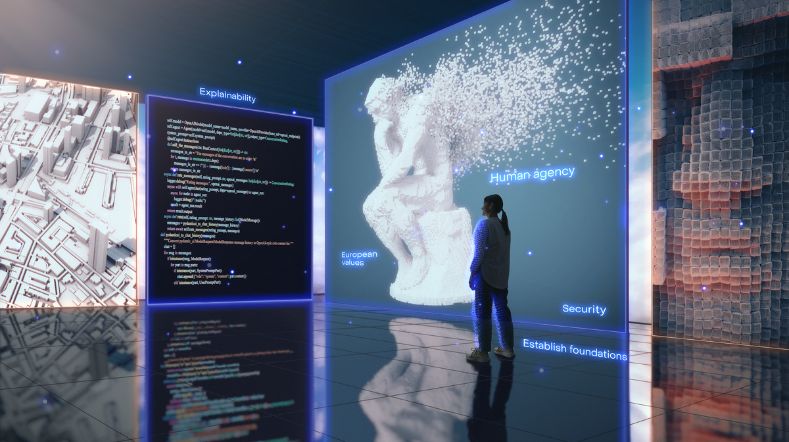TNO Privacy policy test drives
This Privacy Policy (the "Policy") describes how TNO ("TNO", "we", "our" or "us")) uses and discloses your information (your "personal information" or “personal data”) collected and processed in relation to test drives for development purposes. The vehicles used for these test drives are referred to as Vehicle(s) Under Test (VUT).
You can find information about your privacy rights, how to exercise them and the contact details of our Data Protection Officer in the TNO general privacy statement.
Why does TNO collect personal information?
TNO is a national research institute in the Netherlands. Among other research activities, we conduct research in the mobility domain. In order to conduct this scientific research, we can make use of data collected in the public domain, among others, to (further) develop new (AI) functionalities to increase road safety, develop new methodologies for safety classification, to quantify our research.
Whenever possible, TNO uses consent as the legal basis for collecting personal information for research purposes. However, in the mobility domain it would not be possible to ask consent of road users while performing test drives the public domain. Under these circumstances, and whenever necessary, TNO may rely on its public task to process personal data that is necessary to conduct scientific research as laid down in the TNO-Act.
What personal information does TNO use?
TNO collects the following personal information in relation to test drives for research and development purposes:
- Video recordings in the environment of the vehicle (up to 360 degrees). These video recordings may include license plates and faces of individuals;
- Time-stamped information regarding the dynamic state of surrounding vehicles in relation to the TNO vehicle.
For which purposes does TNO use personal information?
Below, a non-exhaustive list is depicted containing examples of how and for what purposes TNO processes this data:
- Data is used for development and testing of detection and classification of algorithms, with the purpose of detecting and classifying relevant objects and features;
- Data is used to detect and classify the driving environment of a test vehicle, in order to enable research in analysis of the typical dynamics of traffic behaviour, as well as scenario detection and classification;
- Data is used for mapping of the environment in order to synthesise digital twins, which are used for virtual verification and validation.
How does TNO process this information?
The data collected, will be stored, retained and can also be used for further research. Note that personal data may be present in this processing pipeline, solely because (pseudo) anonymisation would possibly lead to a corrupt, non-useable data set. More information on our research can be found on the web page considering our work in the Mobility and Built Environment domain.
Who do we share the collected data with?
The collected data may be shared with:
- Service providers engaged by TNO, including web-hosting firms, mailing services, analytics providers, and IT service providers, These may be suppliers in countries outside the EEA. Whenever this is the case, TNO checks whether the transfer is in accordance with GDPR rules and your data protection rights are safeguarded.
- Collaborative (inter)national (project) partners acting as joint controllers, with whom we work together to establish the methods and objectives of data processing. Please contact us for further information on currently active joint control agreements.
- Technology and research collaborators, such as universities and applied research institutes;
- Other divisions within TNO including any spin-offs, if they process data on our behalf or utilise it for research purposes. In such instances, we will make agreements to ensure that the receiving entity uses your personal data in accordance with the applicable data protection law.
- Law enforcement agencies, courts, regulators, governmental bodies, or other third parties where we believe it is necessary to fulfill legal obligations or protect rights.
Privacy by design
We implement suitable technical and organisational safeguards to protect your data against unauthorised access during its collection, storage, transmission and processing. To this end, we identify the privacy risks in order to determine appropriate security measures, as such balancing our operational needs for data collection and analysis with your interests as individual affected by this process. The collected data will be stored for a maximum of 10 (ten) years, after which it is automatically deleted from our servers.
Your Rights, Questions, Complaints
Based on the GDPR, you have various rights to check if TNO collects and uses your personal data in accordance with the law. You can request access to your data, check if TNO has used the data lawfully or object against the processing of your personal data.
More information on the procedure and the various rights we refer you to the general TNO privacy statement, specifically the section “What are your privacy rights?”. Contact information for “Questions and complaints” is available on the same privacy statement page.
Changes
This privacy statement may be changed at any time by TNO without prior announcement. Changes come into effect as soon as they are published on this website.
Get inspired
How TNO is leading the drive towards sovereign, responsible Dutch AI


TNO joins Dutch chip security company Fortaegis as partner and investor


Time setter story: Anne Fleur van Veenstra


Advanced Computing Engineering

Data Ecosystems

